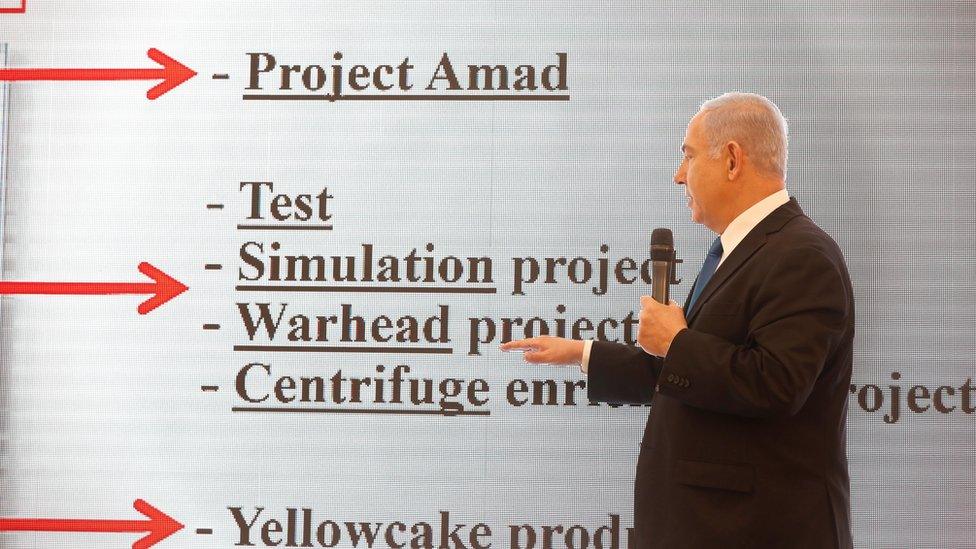Israel ex-top spy reveals Mossad operations against Iran
- Published
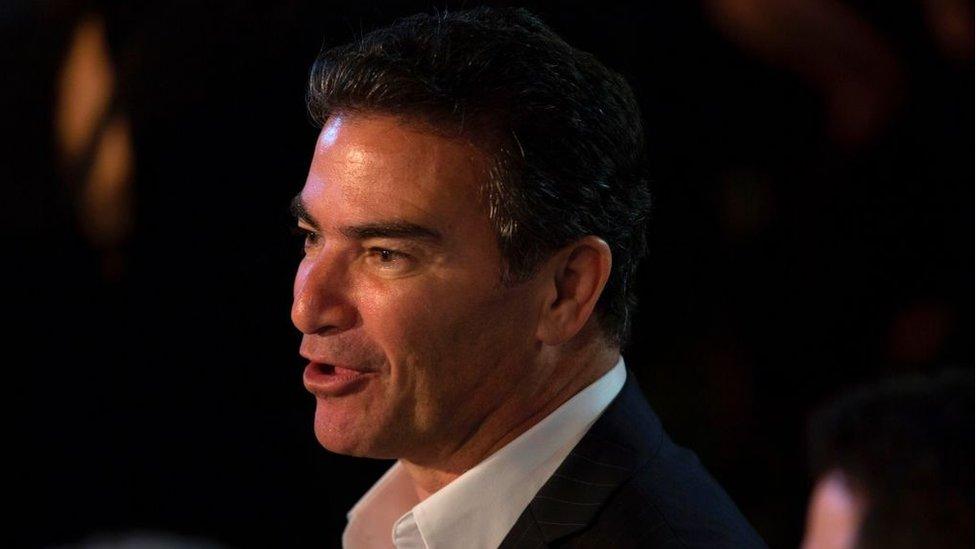
Yossi Cohen led Mossad for more than five years
The outgoing head of the Israeli spy agency Mossad has given a revelatory interview about the country's operations against Iran.
Yossi Cohen gave details about the theft of Iran's nuclear archive.
The warehouse raid in 2018 ferried tens of thousands of documents out of the country to Israel.
He also hinted at Israeli involvement in the destruction of Iran's nuclear facility at Natanz, and the assassination of a nuclear scientist.
Mr Cohen retired as the head of Mossad last week.
He spoke to journalist Ilana Dayan on Channel 12's Uvda documentary programme, which was broadcast on Israeli television on Thursday night.
Israeli Prime Minister Benjamin Netanyahu appointed Mr Cohen as Mossad chief in late 2015. He joined the agency in 1982 after studying at university in London, and told the programme he had had "hundreds" of passports throughout his career.
The most revelatory moments in the interview were about the theft of Iran's nuclear archive.
Mr Netanyahu revealed the stolen files at a press conference in 2018, which he said proved Iran once covertly tried to make nuclear weapons and had secretly retained the know-how - an allegation Iran denied.
In 2018, Israeli PM Benjamin Netanyahu unveiled what he claimed to be Iran's secret atomic archive
Mr Cohen said in the interview that it took two years to plan the operation. In total 20 Mossad agents were involved on the ground - none of whom were Israeli citizens, the journalist Ilana Dayan said.
The spy chief watched the operation from a command centre in Tel Aviv. Agents broke into a warehouse and had to crack more than 30 safes, he said. As images of the trove appeared on screen, "there was incredible excitement for us all," he said, as quoted by The Times of Israel, external.
All operatives survived the raid and are well, he added, although some had to be extracted from Iran.

An interview remarkable in its detail
by Raffi Berg, BBC News Online Middle East editor
While it is not unusual for ex-Mossad heads to give interviews or make their views on certain issues known to the press, Yossi Cohen's comments are remarkable for the level of detail they divulge.
Indeed the Times of Israel online calls the interview "stunning [and] revelatory".
Like something from the pages of a thriller, Cohen describes how agents cracked safes before lifting tonnes of Iranian nuclear documents and getting them out the country while being chased.
Elsewhere, he comes closer than ever to admitting Israel sabotaged an underground Iranian nuclear site.
The interview, however, is calculated and it would have been cleared by Israel's military censors. Its timing is interesting too, coming as talks to revive the Iranian nuclear deal are about to resume amid hints of progress.
It also serves as a reminder to Israel's foes that the Mossad is willing to act deep behind what it considers to be enemy lines.

Israel has spoken openly about taking those tens of thousands of documents. But Mr Cohen also hinted at Mossad involvement in other operations long rumoured to have been the work of Israeli agents.
Early in the interview Mr Cohen spoke about the Iranian nuclear facility at Natanz.
Iran said that sabotage caused a fire at the uranium enrichment site in July 2020. A day after revealing new equipment in April this year, officials again said it had been sabotaged and had suffered major damage. Iran accused Israel of "nuclear terrorism" over the incident.
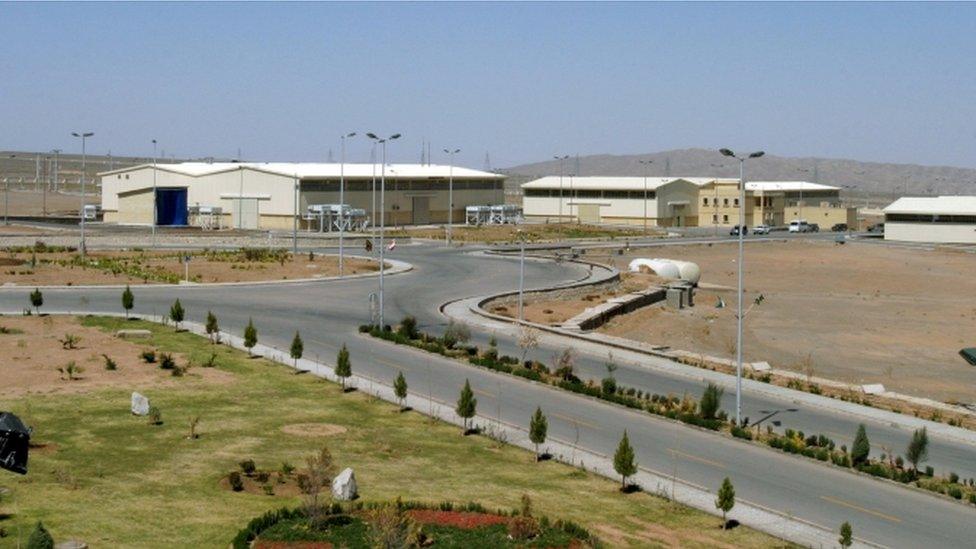
Natanz is an uranium enrichment facility about 250km south of the Iranian capital Tehran
Mr Cohen told Ms Dayan that he knew the site well, and that he could take her to the cellar "where the spinning centrifuges are located". He then added: "Those that used to spin. Nowadays, the cellar doesn't look like it used to."
And he also spoke about Mohsen Fakhrizadeh. Iran's top nuclear scientist was assassinated on a road outside Tehran last November - an attack Iran publicly blamed on Israel.
The ex-Mossad chief did not confirm or deny involvement in the death. But he said the scientist was a target "for many years", adding that his scientific knowledge concerned the agency.
"If the man constitutes a capability that endangers the citizens of Israel, he must stop existing," he was quoted as saying, but added that someone could be spared "if he is prepared to change profession and not harm us any longer".
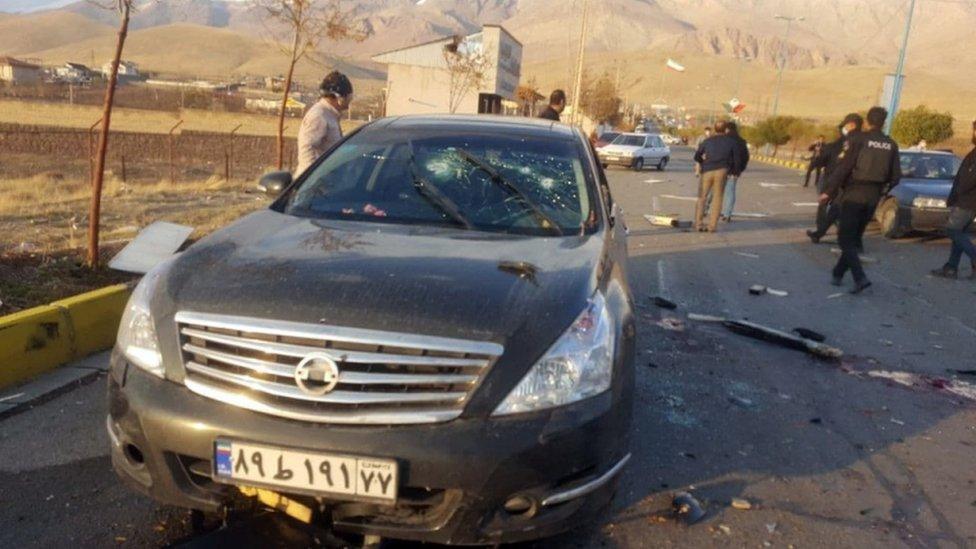
Mohsen Fakhrizadeh was wounded in the attack and later died in hospital, officials said
- Published12 April 2021
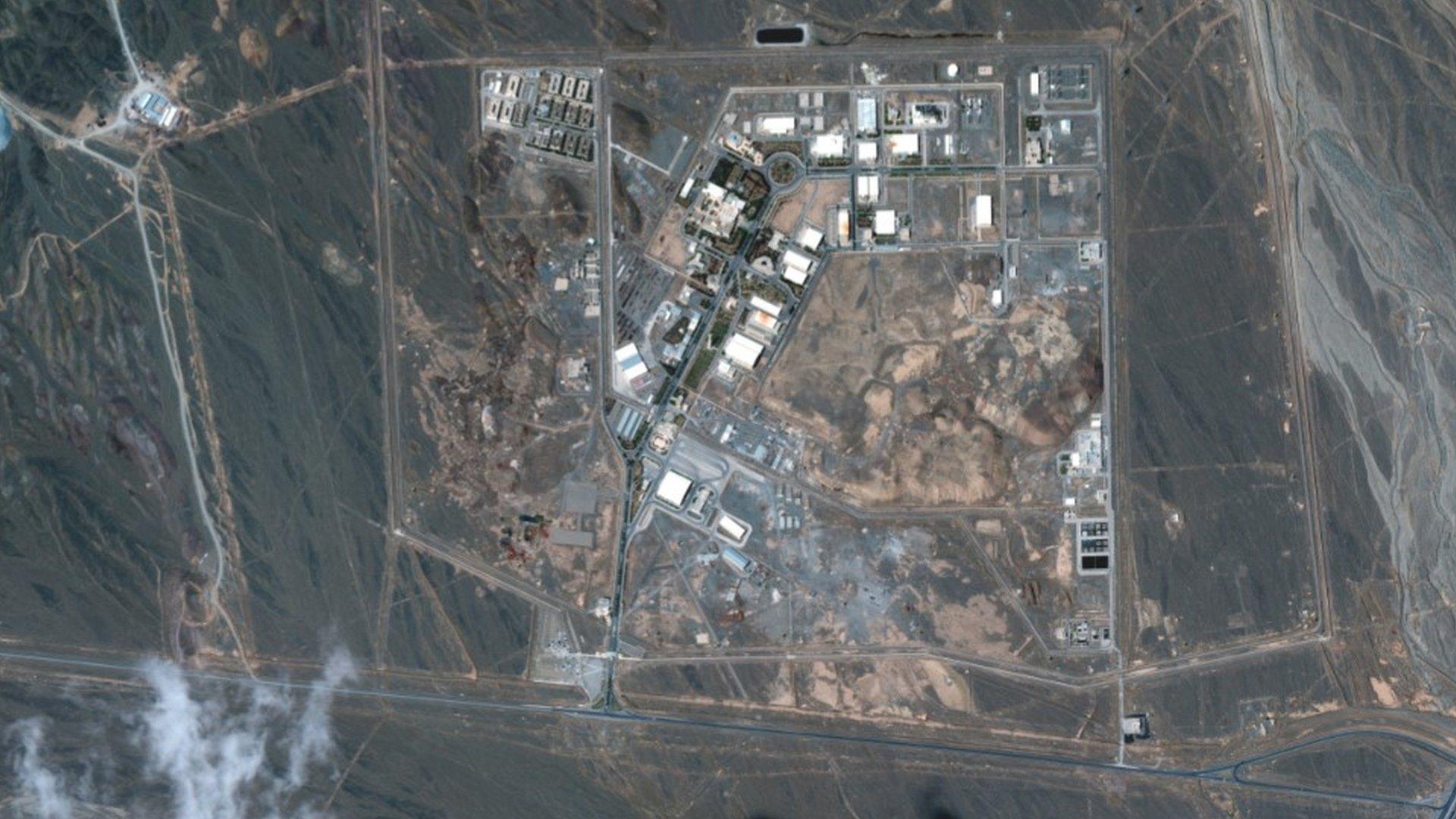
- Published7 December 2020
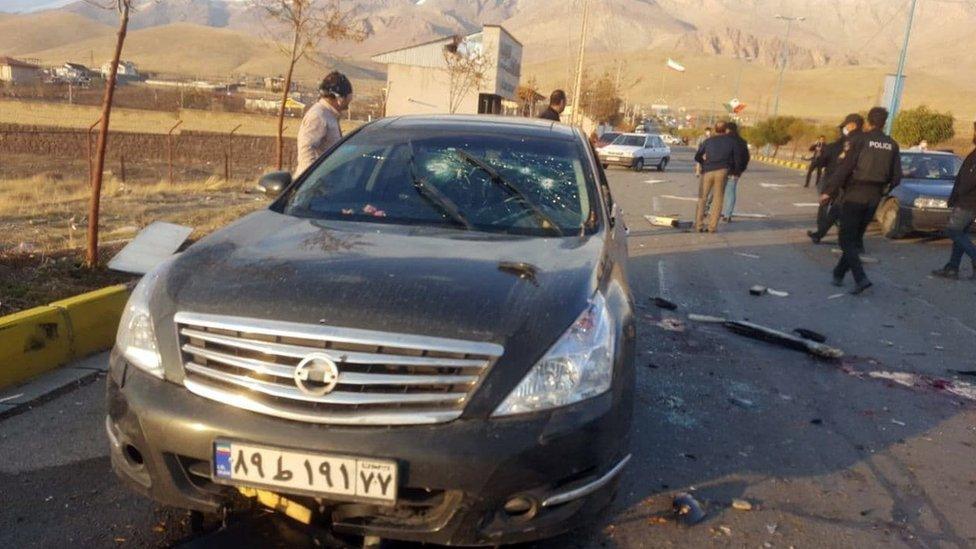
- Published28 November 2020
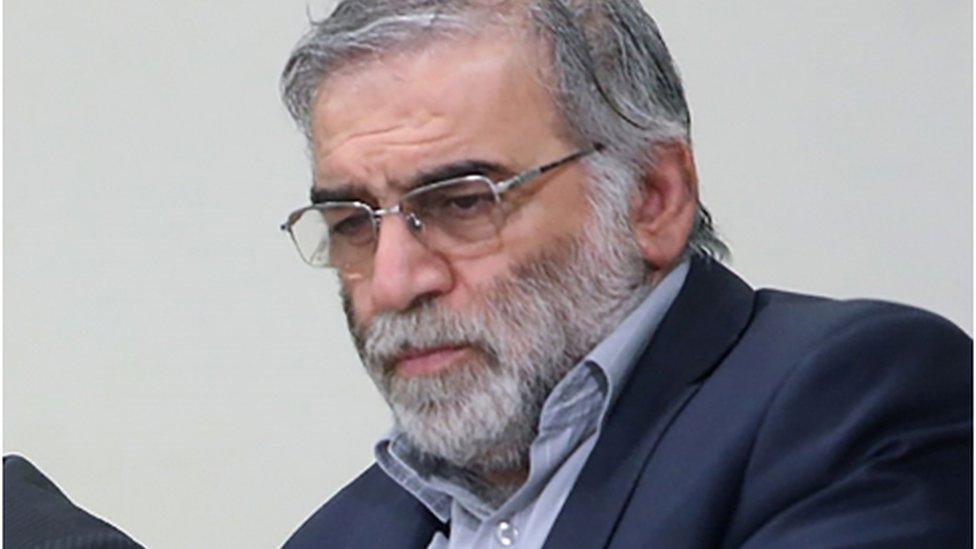
- Published18 November 2020
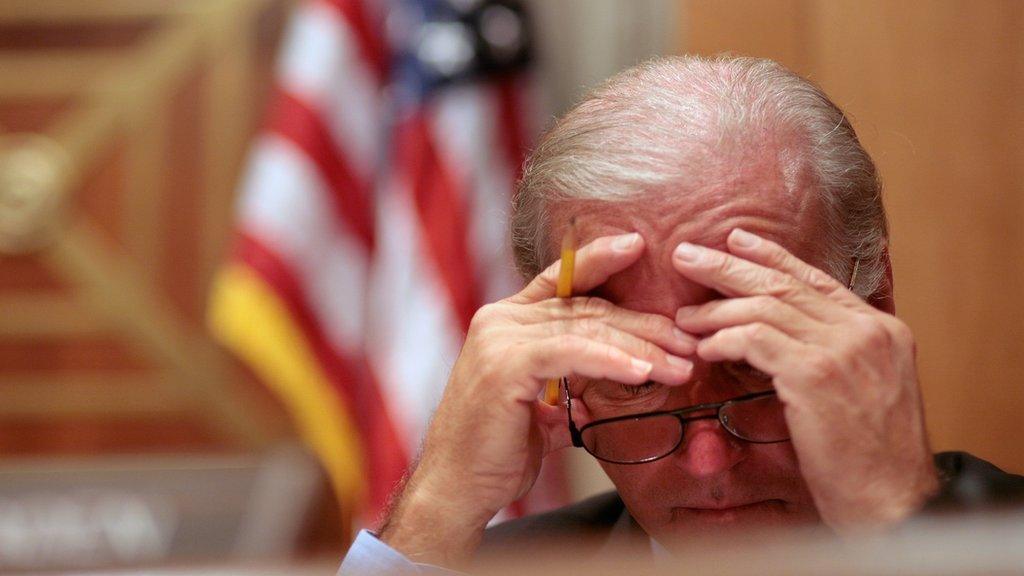
- Published1 May 2018
